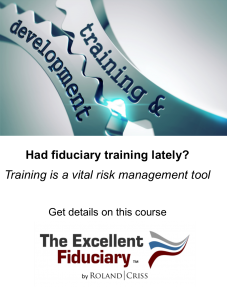Article
As sponsors of defined contribution and defined benefit plans, employers are responsible for ensuring that their plans comply with federal law—including the Employee Retirement Income Security Act (“ERISA”) and the Consolidated Appropriations Act (“CAA”).
Most employers rely on other professionals to advise them and assist them with their employee benefit plan duties. For this reason, selecting competent service providers is one of the most important responsibilities of a plan sponsor.

Third-party risk management is a discipline that requires academic preparation and skills acquired from experience.
Despite these complexities, ERISA requires plan fiduciaries to take appropriate actions to provide benefits and cover costs in the best interests of plan members and beneficiaries. For HR executives and plan committees to choose service providers and investments wisely, information must be available.
Vendors are specialists in the design of their products, services, and compensation arrangements. Executives who buy from these vendors do not have the vendors’ degree of specialization. The result? Vendors have a critical information advantage over their clients.
Complex and risky…
Hiring and managing investment and administration vendors for retirement plans and foundations is complex and risky. Complex due to confusing jargon and interlocking vendors. Risky because buyers are at a major information disadvantage.
Where it all leads…
The information advantage is the root cause of excessive fees. Retirement plan and pension plan participants suffer from these excesses in the form of sub-par investment returns. Employers that tolerate excessive fee arrangements are at elevated risk.
Third-party risk management is a discipline that requires academic preparation and skills acquired from experience. Get help if you feel overmatched by the requirements of assessing your employee benefit plans’ service providers.




